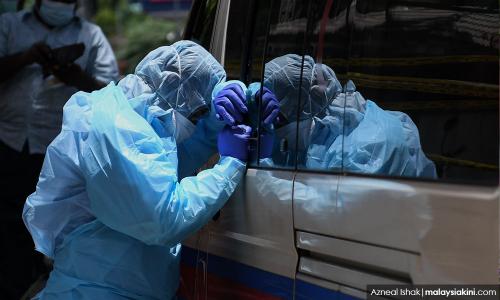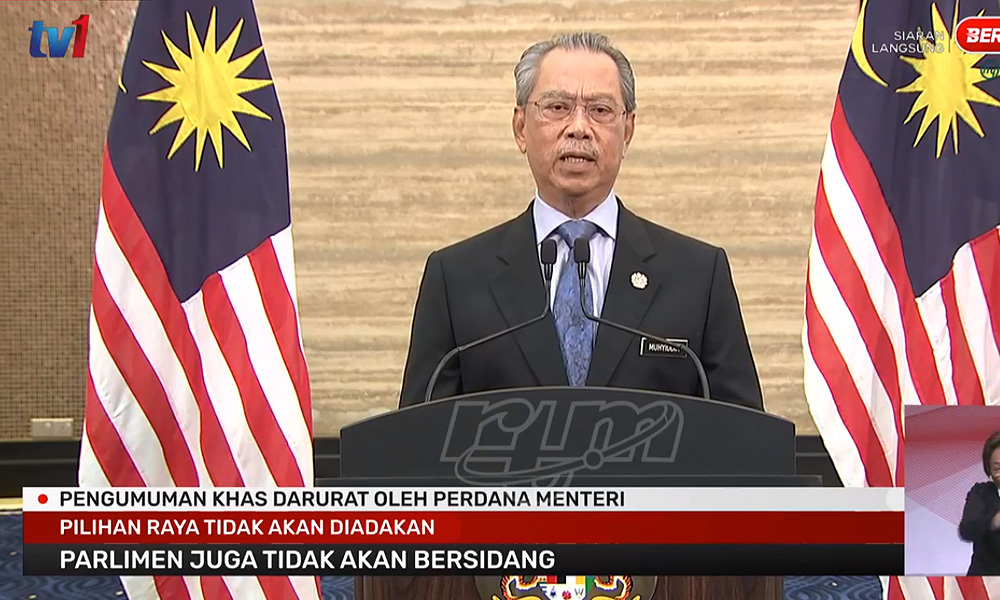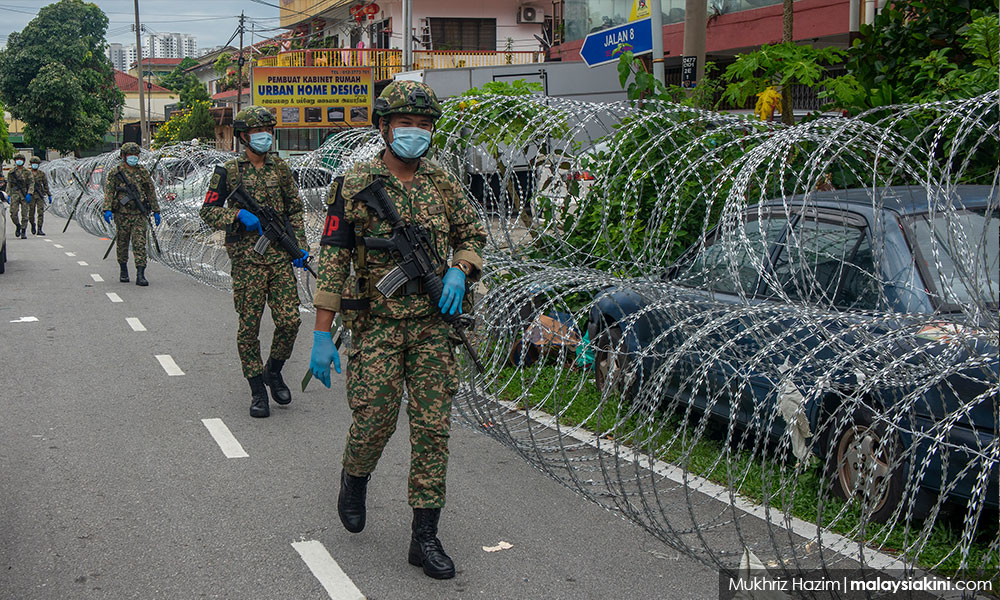MP SPEAKS | Covid-19: How do we manage the third wave differently?
MP SPEAKS | The announcement of the new movement control order (MCO) in some places and conditional MCO or enhanced MCO in others, was largely anticipated. This is indeed a huge admission of failures of the federal government to manage the raging third wave.
Much to the chagrin of everyone, the extension of MCO is surely very damaging to both livelihoods and lives and heap a colossal impact on our already ailing economy and businesses of the rakyat; on mental health and depression; as well as the collateral damage on non-communicable diseases (NCD) care, and another generation with lost educational opportunities.
Beyond just making this announcement, it would be wise for our decision-makers to humbly take a step back and go back to the drawing board to really consider undertaking different strategies rather than “business as usual” and operational modalities.
Fighting the pandemic is like fighting a war. Granted. We have admittedly lost the third wave battle! While no heads will roll as yet, we must not be oblivious of failures and keep on insisting on doing more of the same thing and expecting a different outcome. That will be the ultimate folly, extremely regrettable and irresponsible. There has to be serious accountability.
The Emergency Ordinance has clearly not helped with pandemic management. As most public health experts have cautioned, especially since we are more than one year into the pandemic, we need to be prepared for the long haul.
That the implementation of the various types of MCO is not a solution for managing our pandemic situation is obvious by now. Vaccines are not immediately a silver bullet either, especially with the slow rollout and herd immunity is not within immediate grasp. We may lose the race to emerging variants, now already on our shores.
If we truly crave for our lost prosperity, and freedom, we need a well-thought-out and strategic plan to allow us to live and thrive in safe co-existence with the coronavirus! Not ad hoc emergency plans. But how do we do that?
Like in a war, we have failed on both fronts - the strategic front (doing the right things) and tactical front (doing things right).
While leaders and policymakers must take the blame for failing to provide a strategic approach (which we will spell out later), the rakyat gets the usual hammering and blame for not complying with simple "tactical measures" of standard operating procedures (practise 3Cs and 3Ws, etc).
Leaders should not need any reminder, that, like in a war, tactical moves, could only be efficient in a bigger framework of an effective strategy.
Any leader that confuses "tactical measures" with the need for a sound "strategic approach", must not be allowed to continue to lead the charge.
It may be worth emphasising that in the war against the virus SARS CoV-2, the strategic goal is not to eliminate the virus because you simply cannot!
Doubtless, the strategic goal is to achieve herd immunity, that is, 80 percent of our population. Taking into account the entire work process, a back-of-envelop calculation - and if we aimed to achieve it by year-end 2021, that is, December - we must practically vaccinate on average 75,000 per day.
Assuming numerous glitches, especially the supply-side, it is reasonable to expect to achieve herd immunity by the first quarter of 2022, latest in April 2022!
Be that as it may, what then is the strategic objective before achieving herd immunity? This question begs an immediate answer and in it lies the game-plan for the immediate term.
Simply put, the strategic task of managing the third wave is to ensure that we "outpace the rate of the transmission" of the virus by leveraging our entire capability. The end-game is to always ensure that our health facilities, especially ICUs and ventilators, are not overwhelmed and overburdened until we achieve herd immunity.
We can't win the battle and the war by doing a "catchup" and always trailing and reacting to the many outbreaks and now escalating sporadic cases! We have simply to outsmart the virus, leveraging technology (testings, etc) and artificial intelligence to acquire both speed and volume and prediction capability of potential ignition sites, pre-emptively! On all these counts, we have miserably failed!
Recapitulating, MCO has its place in the strategic management of this pandemic. Yet, a blanket MCO is unnecessarily damaging to sectors and geographic areas where transmission is not substantial and very harmful to livelihoods.
Therefore, as part of the strategic response, a sharp scalpel is needed - "precision public health" - to target interventions at the "smallest geographical unit" possible, based on real-time analytics and empirical evidence.
Not at the state level, not at the district level, not at the mukim level, but at localities, specific buildings, and specific sectors – activities and places which are now known to be responsible for most transmissions, based on the latest evidence.
The latest kid on the block, Hide (Hotspot Identification for Dynamic Engagement) mooted by Bank Negara Malaysia, is the way forward by integrating Hide with Digital, Automated FTTIS, to effectively execute the Find, Test, Trace, Isolate and Support (FTTIS) Protocols.
The Selangor Task Force Covid-19 has been utilising this digital capability before when conducting active case detection in community screening using Acura AI and Big Data Analytics when we had access to epidemiological granular line-listing data.
Arbitrary cut-offs for declaring red zones are unhelpful, especially if they do not take into consideration the density of the population. They can give a false sense of security for small districts where even small numbers of cases represent a significant spread.
Cease lamenting on the critical state of the ICU beds and the overwhelmed healthcare capacity. Instead, the tactical aptitude is to engage with the Association of Private Hospitals Malaysia to operationalise the many solutions discussed since the height of the third wave in January 2021.
Tactics to enhance SOP include an alert system to inform families and businesses to make advanced plans during the highs and lows of the pandemic. Emulate and modify from the four-level Covid-19 alert system in New Zealand, the tier system in the UK or the STFC Traffic Light System.
Last-minute, poorly thought announcements by the senior minister is a typical example of a failed communication, which does not inspire trust and confidence in the rakyat.
The toll on our lives, livelihoods and the nation’s socio-economics is extremely painful and costly. The government of the day, its ministries and agencies must walk the talk of a truly whole-of-government and whole-of-society approach to regain the trust of the rakyat and to immediately deploy the new public health tools at our disposal for a rapid pandemic response to the burgeoning health and economic crisis.
DZULKEFLY AHMAD is Kuala Selangor MP, chairperson of the Selangor Task Force Covid-19 (STFC) and former health minister.
The views expressed here are those of the author/contributor and do not necessarily represent the views of Malaysiakini.
RM12.50 / month
- Unlimited access to award-winning journalism
- Comment and share your opinions on all our articles
- Gift interesting stories to your friends
- Tax deductable


